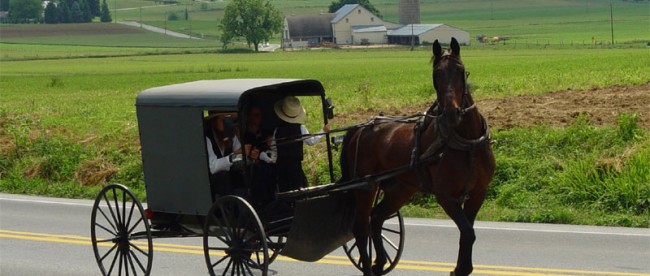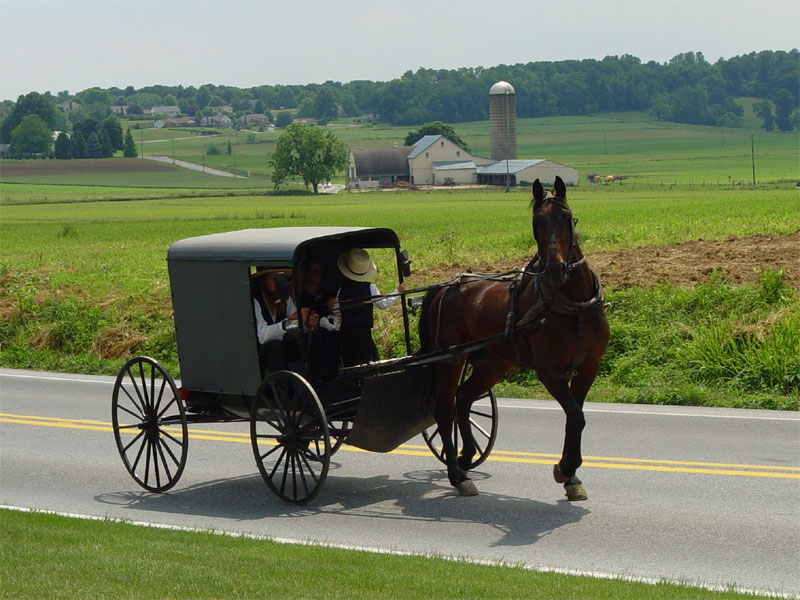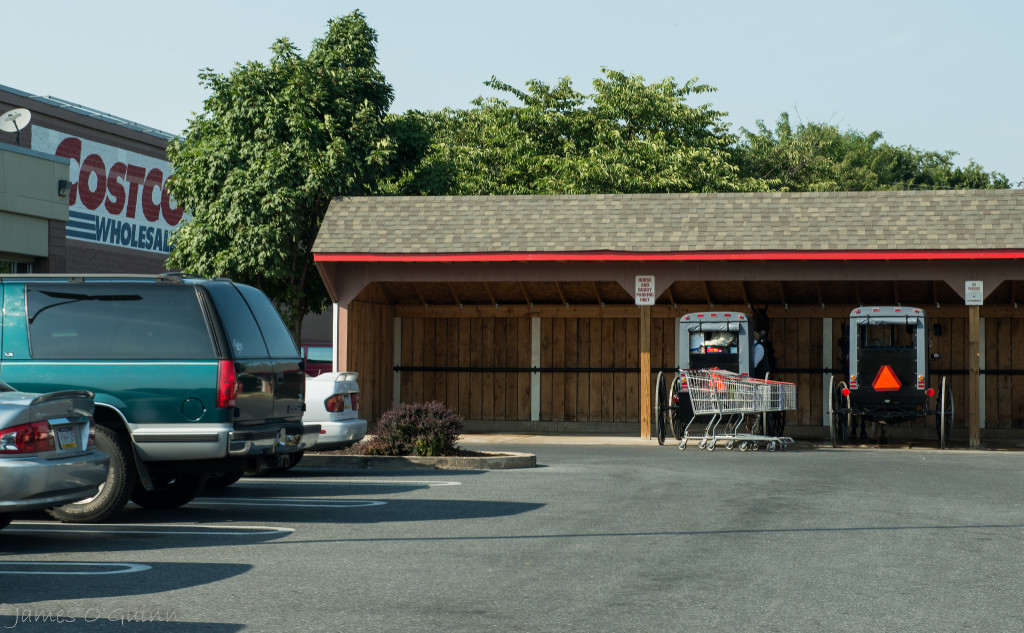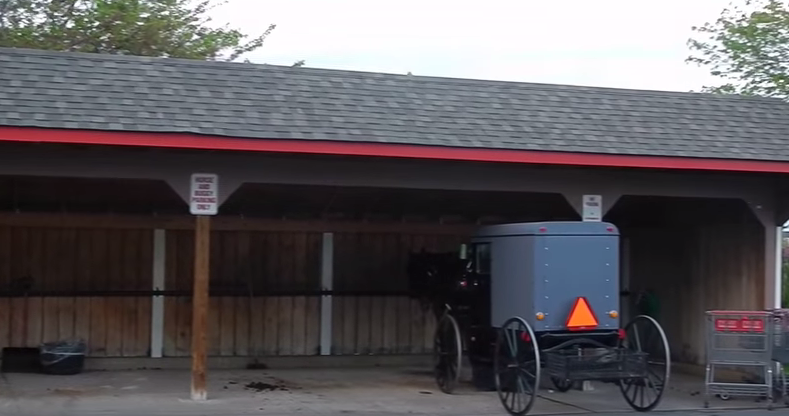Amish Commerce


The Amish are a group of traditional Christians who famously eschew modern technology in favor of what many would consider antiquated solutions. You’ll rarely find electrical outlets or wifi at an Amish person’s home, for example. Similarly, cars are almost unheard of, with horses and buggies (as seen above) the preferred method of transportation.
And if you’re going to bother with a horse and buggy, that means you’re going somewhere.
And that somewhere may be Costco.
Okay, let’s first clear up some misconceptions around the Amish. First of all, they’re not explicitly anti-technology; as NPR explains, “the difference between Amish people and most other Americans is the deliberation that takes place before deciding whether to embrace a new technology,” and that some groups, such as the Amish of Lancaster County, Pennsylvania, “[are] OK with using electricity, but they reject the grid that brings it into most Americans’ homes.” Further, while technology for personal and leisure use is rare, the Amish, generally speaking, don’t fret too much about using some technology in business. It’s still limited — that NPR article references “computers for Amish people” that “tout in its advertising what the machines do not have: ‘no Internet, no video, no music'” — but allows for some basic accounting and word processing.
Which brings us to the second misconception — that the Amish are insular, shying away from interacting with the rest of the world. That’s just not the case. While the Amish traditionally worked on family farms and to a large degree operated within self-sustaining economies, it’s not uncommon for them to participate in the economy at large in many different capacities. Furniture sales are perhaps the most notable — here’s an example of a company which sells Amish furniture — but Amish people participate in a diverse number of economic activities, just not quite as many as the population at large.
Selling furniture and providing other goods and services to the outside world means that Amish people end up with money, and that money isn’t all that useful unless you have something to spend it on. And when it comes to spending money, the Amish are just like anyone else — they’re looking to get the most for their dollar. Shopping at a wholesale club like Costco makes a lot of sense.
The only problem: Where do you park the horse and buggy?
As it turns out, if you’re visiting the Costco in Lancaster, Pennsylvania, that’s not a problem, as seen below:

Those stalls are reserved for horse and buggy parking. Here’s a closer view:

The sign reads, simply, “horse and buggy parking only” and there are enough spots for four or five such vehicles. It’s unclear what Amish shoppers get at Costco — the Lancaster store specifically advertises their “auto buying program” and “inkjet cartridge refill.” But clearly, Costco caters to them nevertheless.Of course, even these accommodations have their limits. If you look carefully at the left side of the bottom picture, you’ll note that there’s a shovel and bucket — assumedly, Costco provides parking, but doesn’t provide cleanup.
Bonus Fact: It’s unlikely that an Amish person is going to be taking a plane trip, but if one does, he or she may find travel difficult — the lack of a driver’s license may prove to be a barrier, as plane travel requires an ID. While non-drivers can get a government-issued ID, that’s not necessary. In fact, that Costco membership may help. As KPIX in San Francisco reported, per a Transportation Security Administration spokesperson, “a library card or a Costco card or a school ID” may be enough to validate who you are. It’s not ideal, though, as those using non-traditional forms of ID such at their Costco membership may be subject to stricter security screenings than normal.From the Archives: What Happens to U.S./Canadian Relations When Milk Prices are Out of Sync: The short version? A lot of people drive to Costco.
Take the Quiz: Name the ten states with the highest Amish population.
Related: “Amish Grace: How Forgiveness Transcended Tragedy” by Donald Kraybill, Steven Nolt, and David L. Weaver-Zercher. 4.5 stars on 160 reviews.
